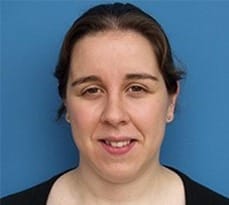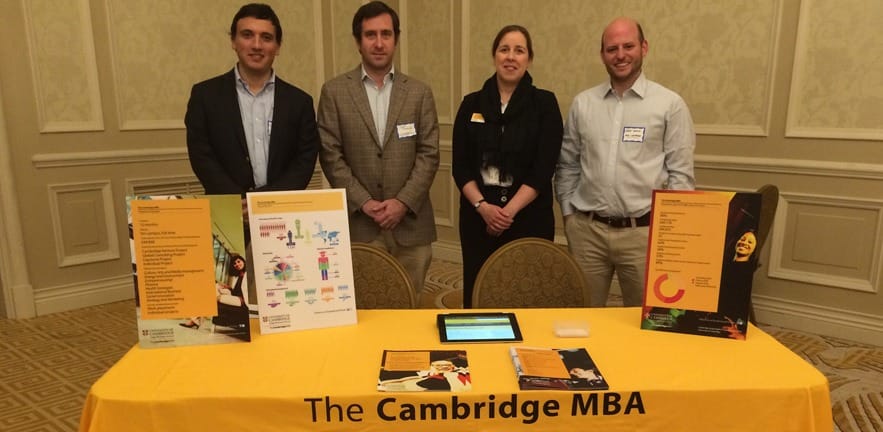Luisa Clarke finds a ‘home from home’ in a visit to candidates in Santiago and gives her tips for researching before your fair visit and application.

At this time of year the MBA Admissions team are out on the road so look out for us at MBA events in your region. In a sea of blue, black and red tablecloths, our bright yellow stand certainly stands out. I have recently returned from events in Chile and Brazil, both markets in which we have both fantastic alumni support and strong applications to the programme. We are thoroughly committed to our basis in Latin America and try to visit at least once throughout the year to ensure our network keeps growing.
This was my first visit to Chile so I didn’t really know what to expect in terms of Santiago and the candidates gathering there. What I found was a home away from home; Chileans told me that Chile is known as the UK of Latin America and I can really understand why. Candidates were very humble, quite reserved and – most British of all – queued in line waiting to speak with me; their patience was much appreciated at an incredibly busy fair.
Pre-fair research
In the fair setting, it’s not unusual for us to only have a few minutes to speak with each candidate, so I would really recommend that candidates do some basic research ahead of time in order to get the most from their time with an Admissions representative. Having a shortlist of schools that you wish to speak with, and some very specific questions in mind, means that you can walk away with a good personal understanding of your next steps after the fair.
The four/five schools rule
I always recommend to prospective candidates that they should narrow down their shortlist to just four or five schools that they REALLY want to apply to. If you don’t make this decision at the application stage, invariably you will spend a lot of time (and maybe money) on applications and then end up with a handful of offers. Good in some ways, but also confusing when you are under pressure to make your decision and commit to one programme, and you still haven’t figured out what is important to you and how each of the offers differ.
Ask us specific questions
Spend time at this research/application stage really exploring the MBA market and working out what will suit you best, be that full-time study or part-time study, a home school or an international experience, and all the necessary entry exams and requirements. My heart always sinks when I go to an event and the first thing a prospective candidate says is, “Tell me about your school”. It’s difficult for me to summarise Cambridge and the myriad of opportunities available at this University in only a few minutes. Much better to have a specific question about a particular aspect of the programme that has interested you, such as the project work, an elective, or sector-specific learning. This not only shows that you’re well prepared but also allows my team the opportunity to give you genuinely useful and tailored information.
For example, as part of our programme all students undertake a practical project in the first term called the Cambridge Venture Project. This is often many students’ first taste of entrepreneurship and working with a start-up business. For students who asked me about this in Chile, I was able to tell them that across Latin America I have seen a trend in our alumni for starting their own company after the MBA. Off the top of my head I know: a technology entrepreneur in Mexico, a finance entrepreneur in Brazil and a FMCG entrepreneur in Chile. It is great to speak with these alumni and hear how the Cambridge MBA programme inspired them to start their own venture. By then sharing these real-life stories with new candidates we can demonstrate both how the Cambridge MBA can transform career journeys and the importance of the personal relationships that we build with our MBA community.
And that’s really the Cambridge difference (yellow tablecloths aside).
Luisa Clarke
MBA Admissions Coordinator, Candidate Management


